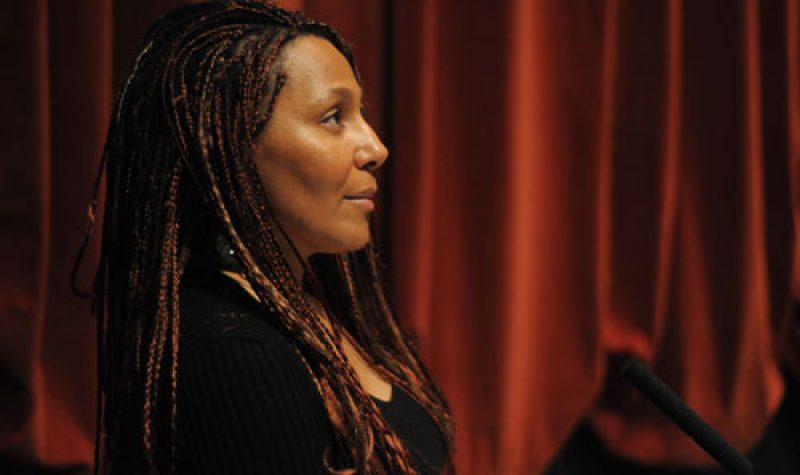By David P. Ball
---
Black women who sit on a federal advisory group for a National Plan for Ending Gender-Based Violence have launched a new caucus to highlight their experiences, which are too often erased from Canada's conversations about violence against women.
That's according to Angela Marie MacDougall, executive director of Battered Women's Support Services in Vancouver, who last week launched the national caucus alongside Nneka MacGregor, executive director of the Women’s Centre for Social Justice, and Paulette Senior, CEO of the Canadian Women's Foundation.
"It's historic, a major initiative," she said in an interview with The Pulse on CFRO. "We're building a national voice for Black women, girls and gender-diverse people to look at gender equity and gender-based violence.
"One of the big challenges for Black women for Canada is invisibility ... which grows directly from Canada's policies to eliminate Black people from these lands"
Last year for Black History Month, her organization created a page of resources on Black women's history in Canada, something MacDougall continues to highlight today.
Her organization cites statistics including that Black women are 2.5 times more likely to be killed by men than white women, and that 54 per cent of Black women report having experienced abuse that combines misogyny and racism.
But she said there are far too recent statistics or research on Black women's experiences in Canada, due to the erasure of Black women's voices, so her organization is also involved in a study project seeking such data to be able to highlight racism and sexism across the country.
"We need disaggregated data to look at gender-based violence ... to fill those gaps," she said.
The lack of comprehensive data will hopefully soon be addressed. On Feb. 3, the federal government announced a five-year, $2.5 million investment in research addressing "the safety of Black women, girls, and Trans and gender-diverse people," aimed to "shed light on the interconnections between gender-based violence and anti-Black racism," according to Maryam Monsef, the Minister for Women and Gender Equality.
Meanwhile, Canada's female prison population is disproportionately Black, with few figures more recent than a decade ago when the national correctional watchdog warning in a 2012 report that, "The number of incarcerated Black women appears to be rising quickly," with Black women representing 9.12 per cent of women in federal jail in Canada, but making up only three per cent of the population. In 2010, the number in federal prisons skyrocketed 54 per cent, and then again by another 28 percent until 2012.
But it's not just about who is in prison but why, with more than half of Black women incarcerated for drug-possession offenses, and the majority poverty-related in some way. More data is needed, but it is clear that viewing Black women as "criminals" is "baked into Canada's history," MacDougall said.
And police are far less likely to respond or protect Black women when they face violence, she added, often perceived to be the aggressor when they were the survivor.
"Critical race theory is certainly missing from a lot of things we do in Canada, especially when it comes to gendered violence," MacDougall said. "It's also about redressing the systemic and structural inequities grinding down people's lives."


